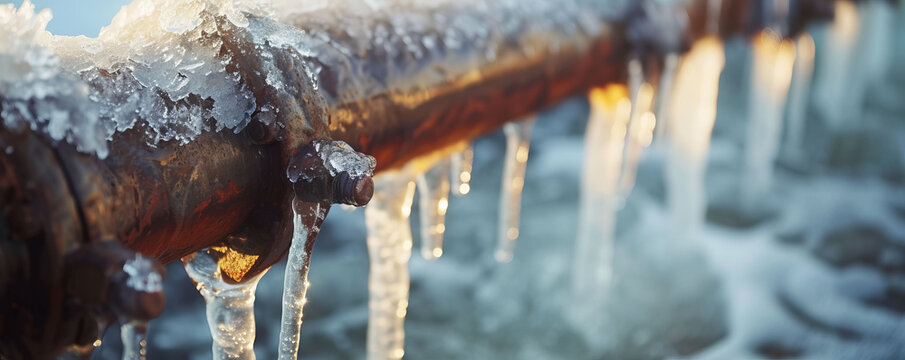Tips to Protect Pipes from Freezing: Expert Advice
Tips to Protect Pipes from Freezing: Expert Advice
Blog Article
Just about every person seems to have their personal idea on the subject of Prevent Frozen Pipes .

Cold weather can wreak havoc on your pipes, specifically by freezing pipelines. Below's just how to stop it from taking place and what to do if it does.
Introduction
As temperatures drop, the risk of icy pipes increases, potentially bring about expensive repair services and water damage. Recognizing just how to avoid frozen pipes is vital for property owners in cool environments.
Prevention Tips
Insulating prone pipes
Wrap pipelines in insulation sleeves or utilize heat tape to safeguard them from freezing temperatures. Concentrate on pipelines in unheated or exterior areas of the home.
Home heating techniques
Maintain interior areas adequately heated, particularly areas with plumbing. Open cabinet doors to allow cozy air to distribute around pipelines under sinks.
How to identify frozen pipes
Search for lowered water flow from taps, uncommon odors or sounds from pipelines, and noticeable frost on revealed pipelines.
Long-Term Solutions
Architectural changes
Consider rerouting pipelines away from outside wall surfaces or unheated areas. Include added insulation to attic rooms, cellars, and crawl spaces.
Updating insulation
Buy top quality insulation for pipes, attic rooms, and walls. Proper insulation helps preserve constant temperatures and reduces the danger of frozen pipelines.
Securing Outdoor Pipes
Garden hoses and exterior taps
Separate and drain pipes yard pipes before wintertime. Set up frost-proof spigots or cover outdoor taps with insulated caps.
Understanding Frozen Pipes
What triggers pipes to ice up?
Pipes ice up when subjected to temperatures below 32 ° F (0 ° C) for prolonged periods. As water inside the pipelines ices up, it broadens, taxing the pipeline wall surfaces and potentially causing them to rupture.
Risks and problems
Frozen pipelines can bring about water disturbances, residential or commercial property damages, and expensive fixings. Burst pipelines can flood homes and trigger comprehensive structural damages.
Indications of Frozen Pipeline
Identifying icy pipelines early can avoid them from breaking.
What to Do If Your Pipes Freeze
Immediate actions to take
If you suspect icy pipes, keep faucets open up to eliminate pressure as the ice melts. Make use of a hairdryer or towels taken in warm water to thaw pipelines slowly.
Final thought
Stopping frozen pipelines requires positive procedures and fast feedbacks. By recognizing the causes, indicators, and safety nets, property owners can secure their plumbing during winter.
Helpful Tips to Prevent Frozen Pipes this Winter
UNDERSTANDING THE BASICS: WHY PIPES FREEZE AND WHY IT’S A PROBLEM
Water freezing inside pipes is common during the winter months, but understanding why pipes freeze, and the potential problems it can cause is crucial in preventing such incidents. This section will delve into the basics of why pipes freeze and the associated problems that may arise.
THE SCIENCE BEHIND FROZEN PIPES
When water reaches freezing temperatures, it undergoes a physical transformation and solidifies into ice. This expansion of water as it freezes is the primary reason pipes can burst. As the water inside the pipe freezes, it expands, creating immense pressure on the walls. If the pressure becomes too great, the pipe can crack or rupture, leading to leaks and water damage.
FACTORS THAT CONTRIBUTE TO PIPE FREEZING
Low Temperatures: Extremely cold weather, especially below freezing, increases the risk of pipes freezing. Uninsulated or Poorly Insulated Pipes: Pipes located in unheated areas, such as basements, crawl spaces, or attics, are more prone to freezing. Insufficient insulation or lack of insulation altogether exacerbates the problem. Exterior Wall Exposure: Pipes running along exterior walls are susceptible to freezing as they encounter colder temperatures outside. Lack of Heating or Temperature Regulation: Inadequate heating or inconsistent temperature control in your home can contribute to frozen pipes. PROBLEMS CAUSED BY FROZEN PIPES
- Pipe Bursting: As mentioned earlier, the expansion of water as it freezes can cause pipes to burst, resulting in significant water damage.
- Water Damage: When pipes burst, it can lead to flooding and water damage to your property, including walls, ceilings, flooring, and personal belongings.
- Structural Damage: Prolonged exposure to water from burst pipes can compromise the structural integrity of your home, leading to costly repairs.
- Mold and Mildew Growth: Excess moisture from water damage can create a favorable environment for mold and mildew growth, posing health risks to occupants.
- Disrupted Water Supply: Frozen pipes can also result in a complete or partial loss of water supply until the issue is resolved.
WHY CERTAIN PIPES ARE MORE PRONE TO FREEZING
- Location: Pipes located in unheated or poorly insulated areas, such as basements, crawl spaces, attics, or exterior walls, are at higher risk of freezing.
- Exterior Pipes: Outdoor pipes, such as those used for irrigation or exposed plumbing, are particularly vulnerable to freezing as they are directly exposed to the elements.
- Supply Lines: Pipes that carry water from the main water supply into your home, including the main water line, are critical to protect as freezing in these lines can affect your entire plumbing system.
- Underground Pipes: Pipes buried underground, such as those connected to sprinkler systems or outdoor faucets, can be susceptible to freezing if not properly insulated.
https://busybusy.com/blog/helpful-tips-to-prevent-frozen-pipes-this-winter/

As a keen reader on Winter Plumbing Precautions: Preventing Frozen Pipes, I figured sharing that excerpt was sensible. Liked our blog entry? Please share it. Help another person discover it. Bless you for your time. Kindly check our website back soon.
Booking Page Report this page